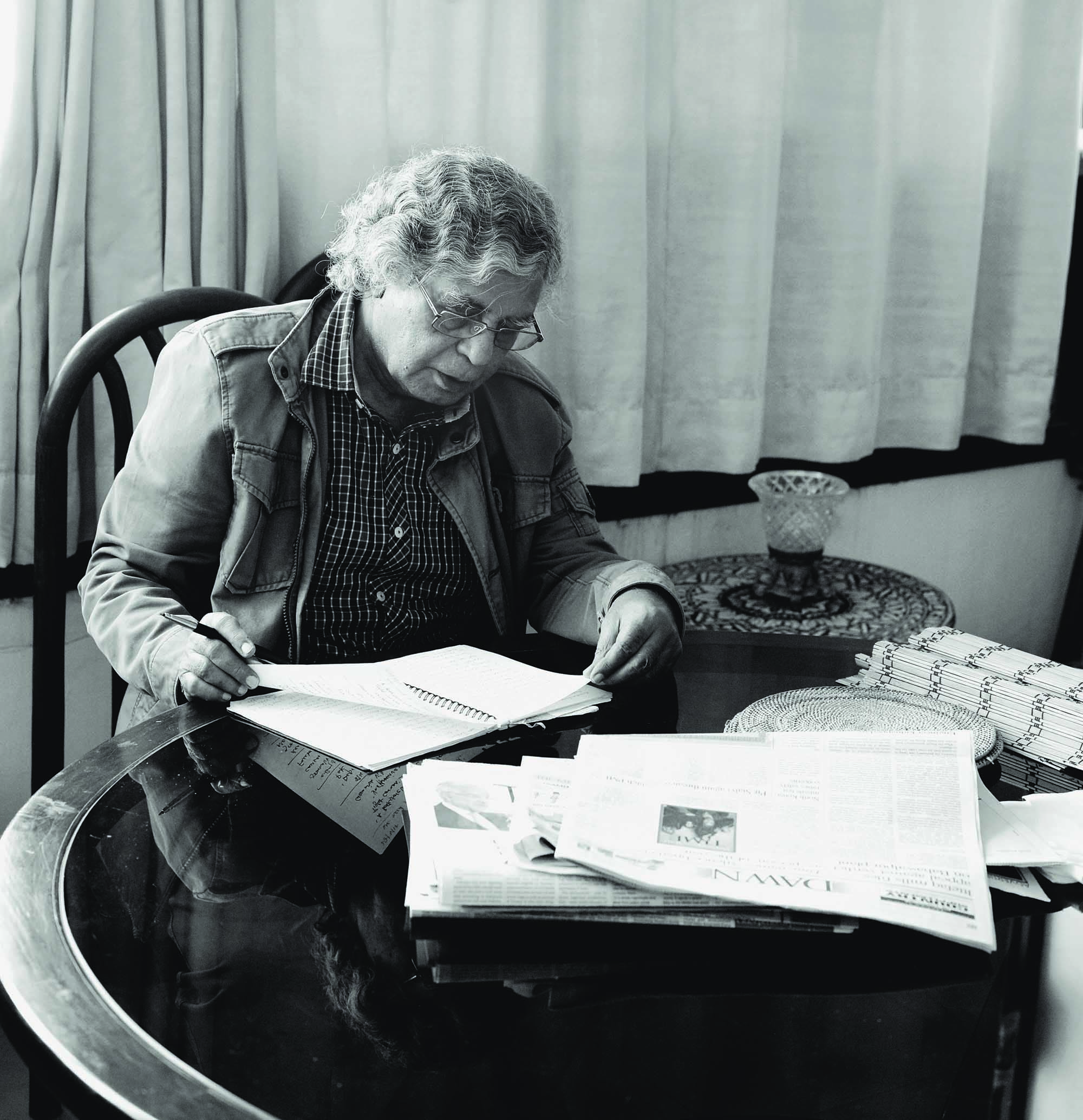
A FEW weeks after Zulfikar Ali Bhutto’s execution, I drove to his grave with my family. In Larkana, Benazir was receiving people who were coming for condolences. A Sindhi-language journalist led us into her presence. When informed that I was in Dawn, she apparently was not very pleased and said the meeting was not to be reported.
But when I told her my name and said that I wrote ‘Karachi Diary’, everything suddenly changed. She called a friend rather excitedly: “Come, come”. And I felt extremely flattered when she quoted some sentences from my recent columns.
This was an exceptional instance of the kind of feedback that Karachi Diary would occasionally provoke during those days of pain and anxiety. Almost the entire nation was in a state of bereavement. Readers of Dawn, drawn from more literate and more enlightened segments of society, were particularly irked by that drift towards militant obscurantism.
Since those days of the long night of Ziaul Haq’s Martial Law are now slipping out of living memory, I sometimes try to awaken the interest of the present generation of our youth in the historical significance of that period. A valid point of reference is the role of the media in its abiding pursuit of freedom and the ability to portray the pulsating reality of the moment.
But the media itself is the mirror of how things have changed. It has risen to new depths of depravity. Besides, because of our pathological disdain for history, we do not much care about the choices we have made as a nation. Hence, when I reminisce about the weekly column that I wrote in Dawn for just over a decade, until I left to be part of a great journalistic adventure of the launching of The News, I feel the passing of a world that has been lost forever.
Dawn in those days was the predominant English newspaper and one would assume that it had considerable influence on policy as well as the thinking of the intelligentsia. That is why I see that opportunity of writing a column as the pride of my very long stint as a journalist. But it was the timing of it that mattered.
Now, Dawn has had a long and illustrious list of regular columnists and I was hoping to make an honourable mention of a number of them. However, I gave up when the names flickered on my mind’s screen because there are so many of them. My thoughts about them also made me realise that my own contribution was not of much consequence. Which, in an inverted sense, is the reason I want to recall that experience.
Opinion pieces in a newspaper, ideally, are meant to inspire sober reflection with their analyses of certified ground realities. But Karachi Diary was more emotional and more subjective. There were restrictions on the media and the overall social environment was oppressive. So I resorted to writing between the lines, frequently leaning on poetry. The first column I wrote after press censorship was imposed on October 16, 1979, had an entire poem of Faraz – published in Urdu without translation.
Yes, Karachi Diary was not an appropriate title for a column devoted to larger national issues. It was intended to cover the cultural and literary activities of the city. But with the advent of Martial Law, I gradually and surreptitiously shifted its focus and was encouraged by its response. It became so personal and passionate in its setting that the birth of my younger daughter during the unrest before the imposition of Martial Law became an allegory of hope as well as apprehension about the future.
At one level, my column became the requiem for the hanging of Zulfikar Ali Bhuttto. A national trauma was reduced to private grief for the readers. This was followed by a long struggle for democracy. Then, there was Karachi and the initiation of its unending depredation. All across, there was a loss of hope and I was somehow able to render the popular distress in a defiant tone.
In the wake of press censorship, there was a time when writing about Bhutto was not allowed. I realised that Martin Luther King was assassinated on the 4th of April, the date on which Bhutto was hanged. So I would write about King and the personification was perfect, with quotations (‘I have a dream’) that fully illustrated the Pakistani situation. I also did not forget to mention that King was a Capricorn – as was Bhutto.
There were other similar allusions. This was the time when Faiz spent his final years in Pakistan and he died during Zia’s reign – in late 1984. So, I wrote about what it meant to have a Faiz in our lives. It is strange how his poetry has provided captions to our political experiences, also quoted endlessly by his ideological adversaries.
One reason why I had a good following was that Karachi Diary, along with other columns, was a regular feature of Dawn Overseas Weekly, published mainly for our diplomatic missions abroad.
I remember that there were many suggestions, including from some distinguished individuals, that I do a book of selected columns. My excuse was that there were so many hints and covert references to the week’s developments that every column would need footnotes.
I have not quoted from my columns but, to conclude, here is something that should give you some idea of what it was. In February 1979, five days before the Supreme Court judgment on Bhutto’s case, I had met his minister of external affairs Aziz Ahmad. This was the last paragraph of a column I wrote after Bhutto’s hanging:
“Anyhow, I wondered why Mr Bhutto had to suddenly leave for a tour of some Muslim countries in June 1977, leaving the signing of the accord with the PNA. Mr Aziz Ahmad said he had asked Mr Bhutto the same question and added that Mr Bhutto had given an enigmatic answer. What was that answer? He told Mr Aziz Ahmad: ‘I went to say goodbye’.”
The writer is a senior journalist and socio-political commentator.
This story is part of a series of 16 special reports under the banner of '70 years of Pakistan and Dawn’. Read the report here.































